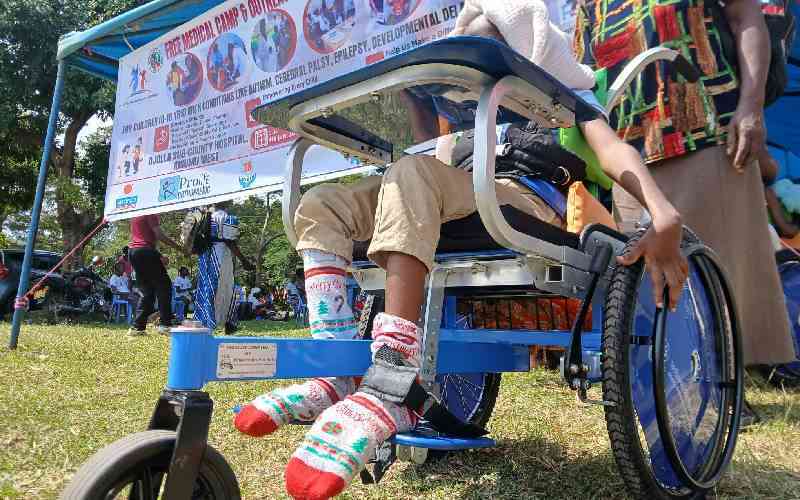As nations marked World Cerebral Palsy Day on Tuesday, Kenyans had a reason to celebrate following the enactment of the Disability Act 2025 by President William Ruto. The Act recognises the role played by parents and caregivers of persons with disabilities, which includes cerebral palsy.
For example, Section 57 of the law provides for income tax exemption for parents and guardians of persons with severe disability. This move is welcome because of the huge financial costs involved in taking care of persons with severe disability (PWD). For me, as a father to a son with cerebral palsy (CP), the Act is god-sent despite the many roadblocks placed on the way in order to deny caregivers the tax exemption benefits.
Cerebral palsy is a life-long condition that affects a child’s movement, muscle coordination, posture and sometimes speech and learning abilities. One of its causes is damage to the brain, especially during birth. Children with CP may experience stiffness, weakness or involuntary movement. Others have weak lungs and difficulty eating. This affects their independence and quality of life.
Follow The Standard
channel
on WhatsApp
Caregivers and medical practitioners are well aware of the many other health complications related to this condition. Physiotherapy and occupational therapy are top requirements for the management of cerebral palsy. This condition also involves physical disability although some children CP grow abnormally tall.
Specialists recommend a minimum of two sessions of therapy a week. Other children need more than two sessions depending on severity of the condition. Attending therapy sessions is a big challenge to caregivers because of several reasons. First, the distance between the child’s home and the hospital is critical. The farther the caregiver is from health facilities, the less the number of therapy sessions attended.
Distance determines the cost of transport to hospital. While it is possible for a caregiver or parent to carry a baby to hospital, this becomes a challenge as the child grows up and becomes heavier and taller. Therefore, the caregiver must either hire a taxi or motorbike to ferry the child to and from hospital. This adds to the overall cost of managing the conditions for caregivers.
In areas without passable roads, moving these patients is a nightmare. Visits for therapy sessions are also limited by weather conditions, especially the rainy and cold seasons. Rains make movement challenging in rural areas while cold is a trigger for pneumonia, common to CP children.
Another challenge that caregivers face is the ever-rising cost of managing the condition. These include the cost of medicine and supplements, the cost of diapers and money for specialised diet. Besides, there are few public schools where these children can be enrolled. Many public schools have not implemented the Education Ministry’s guidelines to include facilities to cater for those with physical disabilities. Private schools that cater for special needs children are out of reach for poor caregivers.
This means that caregivers find themselves suffering in silence. In some cases, they are discriminated against and stigmatised because of mythical cultural attitudes. This is one factor that makes some people hide those with disabilities in some communities. Depression among caregivers is also common. Some of the children are 100 per cent dependent on caregivers. Sometimes both child and caregiver suffer from chronic insomnia.
One requirement for the tax exemption process is an introductory letter from the employer. This is usually meant to benefit parents or caregivers employed by private organisations or by the State. Unfortunately, some employers have placed unnecessary barriers by failing to issue the letter. This makes it impossible for caregivers to apply for tax exemption from Kenya Revenue Authority.
A casual scrolling of a portal for tax exemption is evidence of the frustrations faced by caregivers as they seek to kick-start the process. Finally, the National Council for Persons with Disability, National Fund for Disabled of Kenya, and the Basic Education and Social Protection departments must intensify CP awareness campaigns.
Follow The Standard
channel
on WhatsApp
By Kaboye Ngugi
